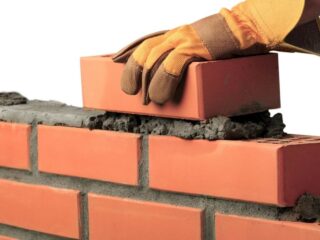
Contemporary home construction has advanced significantly over the years, incorporating innovative techniques and materials. Understanding this process is crucial for homeowners and aspiring builders alike. This article breaks down key stages and considerations in current home construction.
Building a modern home involves several distinct phases, each with its own set of tasks and requirements. Whether you are planning to build a new house or renovate an existing one, gaining a really clear understanding of these stages can help you manage the project more effectively. For instance, finding a reliable roofing company near Palmetto FL, is essential for ensuring that your home is well-protected from the elements. From initial planning to final touches, every step plays a vital role in achieving a successful outcome.
Planning and Design
The first stage in modern home construction is planning and design. This phase includes creating detailed blueprints, obtaining necessary permits, and setting a realistic budget. Engaging with architects and designers at this point ensures that your vision aligns with practical realities. During this stage, it is also essential to research local regulations and zoning laws to avoid any legal complications. For more details here, consulting experienced professionals can help streamline the process and ensure all requirements are met efficiently.
A crucial part of planning is selecting high-quality materials and finishes. For instance, if you are considering flooring options, visiting a reputable flooring store in WI can provide valuable insights into the best choices for your home. The selection process should consider durability, aesthetics, and cost-effectiveness to ensure long-term satisfaction with your investment.
Another important consideration during the planning and design phase is energy efficiency.

Incorporating sustainable building practices, such as using eco-friendly materials, optimizing insulation, and integrating renewable energy systems, can significantly reduce your home’s environmental impact and lower utility costs over time. Consulting with professionals who specialize in energy-efficient design can help you make informed decisions that benefit both your wallet and the planet.
Foundation and Framing
The foundation and framing phases are critical to the structural integrity of your new home. Pouring a solid foundation provides a stable base for the entire structure, while framing establishes the skeleton that supports walls, roofs, and other elements. These steps require precision and expertise to avoid issues like settling or misalignment.
During framing, it is vital to inspect the work regularly to ensure compliance with building codes and standards. Any deviations can lead to significant problems down the line, affecting both safety and functionality. Proper insulation and moisture barriers are also installed during this phase to enhance energy efficiency and protect against weather-related damage.

Advances in technology have also transformed the foundation and framing processes in modern home construction. For instance, the use of insulated concrete forms (ICFs) has gained popularity due to their superior insulation properties and ease of installation. These forms consist of interlocking foam blocks that are filled with concrete, creating a solid, airtight structure. Additionally, the adoption of prefabricated framing components has streamlined the construction process, reducing waste and improving precision.
For projects requiring meticulous tracking, time-lapse equipment can provide invaluable insights into construction progress. Learn more details here to see how this technology enhances project management and monitoring.
Mechanical Systems Installation
Once the framework is complete, the next focus is on installing mechanical systems such as plumbing, electrical wiring, heating, ventilation, and air conditioning (HVAC). These systems are essential for making your home comfortable and functional. Collaborating with licensed professionals ensures that all installations meet safety regulations and perform optimally.
During this phase, careful planning can help avoid future maintenance issues. For example, ensuring that plumbing lines are easily accessible can simplify repairs or upgrades later on. Similarly, integrating smart home technologies can enhance convenience and energy efficiency, making your living space more adaptable to modern lifestyles.
Final Touches
The last stage of modern home construction involves adding finishing touches that make your house feel like a home. This includes installing fixtures, painting walls, laying flooring, and adding trim work. Attention to detail during this stage ensures a polished look that reflects your personal style.
Choosing high-quality finishes not only enhances aesthetics but also contributes to durability and ease of maintenance. Investing in quality materials for countertops, cabinetry and flooring can pay off in the long run by reducing wear and tear. Ultimately, these finishing touches bring together all the elements of your design vision into a cohesive whole.



